Jaen Black: A One-Woman Show
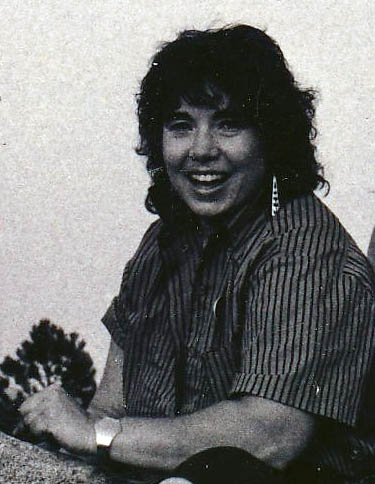
Interview by Rose Norman at the home of Jaen Black in Georgia, on October 16, 2024
Jaen Black (JB): I was born in Waco, Texas, where I lived until I was about five years old. My mother started getting ill. Her people were in Alabama, and we moved to Dothan, Alabama, when I was five. She passed away when I was six. I stayed there and went to school through the twelfth grade. I then sought to bail out of that little town, going to Memphis, Tennessee, where my daddy’s people lived. I went to Memphis State University for one year until I realized I was learning a lot more stuff on the street. I started having real confusion about the fact that I liked girls. Even though I had a girlfriend in the eighth grade through the early tenth grade, I didn’t really understand what it was all about. All I knew was that I liked girls.
My sister had an old friend in Dothan who was a notorious homosexual. She invited me to come live with them in Atlanta. This was in the 1972. I moved there the next weekend, and shortly after I got my first live-in girlfriend. Probably about a year or two after that, we lived in an apartment complex over by Broadview Plaza in Atlanta. Our next-door neighbors were Girl Scouts. But they were like, kind of edgy Girl Scouts, and they were both gay.
One of them was CK Bell, who became an infamous sound and light engineer for all kind of lesbian stuff. She drove a 1959 Chevrolet, and she always had a case of Dr. Pepper in her trunk. She always wore her black and white bebop shoes in the swimming pool. Those two Girl Scouts were involved with the newly-formed ALFA [Atlanta Lesbian Feminist Alliance]. I asked, “What is that?” because I had no understanding of any activism or gay rights. I didn’t even know I had “people” rights at that point. That’s how I first was introduced to the ALFA community, and where I met Lorraine Fontana, Corinne Smith, and all the rest of them, in a house over on Mansfield Street in Little Five Points. I stayed in Atlanta. I worked mostly nontraditional jobs for a woman. I worked in construction, building apartments out in Marietta. This dyke, Jan Cusik (I called her Bear) worked for Jo Harris’s daddy, a contractor, and he hired me and Bear to be laborers on a number of houses he built. We did that for a couple of years. (Jo Harris and BC owned the Tower Bar, a lesbian bar.)
Biographical Note
Jaen Black was born in Waco, Texas, and soon moved east to eventually settle in the Atlanta, Georgia, area. Jaen loved women from an early age. She had her first crush on a girl at the age of eight. She got her first drum set while living in California. Both of those loves blossomed, and they have grown throughout her life.
Jaen attended Memphis State University for one year when she realized, “I was learning a lot more stuff on the street.” That street education paid off by allowing her to pursue several professions not commonly populated by women at the time: commercial electric work, carpentry, and painting.
Jaen Black also pushed barriers for women in drumming, martial arts, and weight lifting. As drummer for Moral Hazard, a popular Atlanta, Georgia, rock band, Jaen began a long musical career alongside her other talents.
From Atlanta to Los Angeles
I went on to work in engineering departments in hotels at Peachtree Plaza when it first opened. That job was through a program that Monica Kaufman started. She was a famous woman broadcaster around Atlanta, and also a feminist activist. There were these programs from the government where they had to hire a certain number of women to do electrical or carpentry work; and to work as a stationary engineer in a hotel engineering department. That’s what I did. I really enjoyed that.
I’ve always been a heavy butch number. Let me say that right off the bat. I own no lace.
I did that a couple of years, and then I moved out to Los Angeles, California [L.A.] because they transferred people to John Portman’s next building, which was the L.A. Bonaventure [now the Westin Bonaventure Hotel & Suites]. I moved out there. I was going to be the locksmith, but I ended up being a painter.
That’s where I bought my first set of drums. I had wanted to be a drummer from childhood but in school they said, “No, girls only play clarinets or flutes. You’ve got good teeth for flutes.” I said, “I ain’t playing some damn flute!” I’ve always been a heavy butch number. Let me say that right off the bat. I own no lace.
She said, “Oh, I heard you’re moving.” I said, “What do you mean?”
She said, “If you move those drums up in there, you have to be moving.”
In L.A., I was making good money working at the Bonaventure downtown. I went to West L.A. Music store and bought this gigantic set of Slingerland lavender 3D Formica drums. The store had had them forever because nobody would buy that color. Today, they’re probably triple in value. Anyway, I paid $500 for them. I had a little Fiat Spider convertible that could hardly fit all of them. I pulled up in front my apartment, and my landlady was out front, and she said, “Hey, Jaen, how are you doing?” She said, “Oh, I heard you’re moving.” I said, “What do you mean?” She said, “If you move those drums up in there, you have to be moving.”
Loving the Drums
I learned early on that it’s nice to have the fantasy of being a drummer, but it’s usually complicated to play drums in your own house. I happened to be able to have my drums set up right now in my house, but it can be troublesome. When I moved back to Atlanta, I set them up in Vicky Hunt’s living room. She was a local lesbian who has since passed away. I actually saved Vicky Hunt’s life one time. We were at the beach playing frisbee in the water and Vicky got caught in a rip tide. At first, we thought she was just drifting away, but she called out that she couldn’t swim. I went out and brought her back with assistance from Jayne Pleasants, who was onshore. It was a really strong tide.
Never having taken a lesson or anything, I learned to play drums listening to the Big BAM (WBAM) radio out of Montgomery, Alabama, and beating on countertops. I learned to play drums by listening to the drum parts. When I finally sat down at a set of drums, I kind of knew how to do it.
When I was fourteen, I went to a party where there was a little band, and there was a set of drums. When they went on their break, I asked if I could sit at the drums. I sat down, and I could play those drums right then!
I had studied drum kits in the Sears Roebuck catalog. I listened to songs and thought, “What drum made that sound?” Anyway, I ended up being a good drummer because I had a good feel for it. That’s how I got into that.
But I knew I was not drawn to men. The only boys I ever dated let me ride their motorcycles.
Coming Out in Atlanta
JB: When I had my first crush, I didn’t know what it was to be a lesbian. Or a female drummer, for that matter. I had to push through some barriers to become a drummer. But in eighth grade, I just was in love with this girl, and she was in love with me. There was no reference for me. It ended up going really bad because the family moved to Huntsville, Alabama, and she sent me all these letters. My stepmother, who was definitely evil, collected all of them, and then ambushed me. One night, we were a family sitting there watching TV, and she said, “What is this?” She took all those letters and mailed them certified mail to my friend’s dad. I never heard from either of them again. But I knew I was not drawn to men. The only boys I ever dated were the ones who let me ride their motorcycles.
Rose Norman (RN): Do you know Lenny Lasater?
JB: Oh, hell, yes. I’ve known her for a long, long time.
RN: We interviewed her, and she has a motorcycle story about that, about boys that would let her drive their motorcycles.
JB: I bet she did. She would, she would. She’s good.
I moved to Atlanta because there were queers there. The women I originally moved in with in Atlanta were not oriented toward activism. They were into drinking and partying, probably. I lost touch with those people after I started hanging out with ALFA women. They took me to my first gay bar. The butch one sat me down and gave me the rules of the road. “You know you’re butch if you’re doing this,” or “This is how you tie a bow tie.” We went to the Sweet Gum Head, which was a great escape behind the auto parts store in the Cheshire Bridge area.
RN: The Lesbian bars in Atlanta were, for example, the Sweet Gum Head, the Sports Page, the Tower, and Garbo’s.
JB: Yes. All of those were primarily women’s bars. The Tower, actually, was a blue-collar men’s bar until the evening, originally, when it became a women’s bar. There was Dupree’s, which was a heavy diesel dyke bar that I never went to. It was kind of a trip. But it was there and stood tall.
RN: Back to the subject of the band. You took the drums that you got in L.A., and you went back to Atlanta.
Meeting Up with the Band
JB: Yes, I moved to Atlanta’s Candler Park area in Five Points. I was always leaning toward that area. I had known Jan Gibson. Jan was a singer-song writer, and just kind of did solo. I heard her play solo, just a song here or there, at various events or something. We got along well. She knew I had drums, and she was wanting to start a band. I had never even really played live music with anybody. I had played to records a few times. But, like I said, I had a good feel for it.
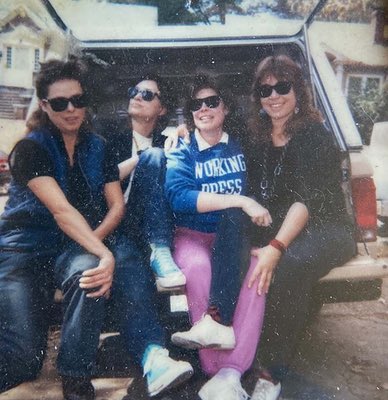
JB Sapp owned a house in Candler Park. JB was a professional sound and camera person for WSB Channel 5 [a CBS affiliate]. She had a really tight day job. She was the only one of us who owned a house where we could practice. Her house was on a dead end, and she invited us to come bring all our junk over to her dining room, which was our rehearsal space for quite a while, for a couple of years.
Jan wrote all the lyrics, and I think she had the melody to the songs; but it was KC Wildmoon who had enough knowledge of the guitar to expand, to create the order of the song, to figure out how to do it. KC had never played lead guitar. She had been a bass player. None of us had done any of this! JB Sapp had never played bass, I had never played drums, KC had never played lead guitar, and Jan Gibson had never fronted a band. Jan’s idea of all of this was to do a theatrical performance band, because she was also a writer, she’s real funny, and she wrote the script for Signals from Sheba. That was the name of one of our first shows, along with Flight 101. Jan wrote the skits that we did in between the songs. We were a theatrical concept band.
We did a lot of radical stuff. We were friends with Faye Allen and Del Hamilton, who owned 7 Stages Theatre [7stages.org]. At the time, it was just getting started, and it was a tiny hole in the wall on Moreland Avenue in Little Five Points. They were having a Chekhov play, and they said we could come play our show after the Chekhov play, which meant eleven o’clock or later at night.
I don’t know how this came about, but we became like the Beatles in Little Five Points for a little while. I mean, people were lining up down the street because it was a little place. Not that many people could fit in. You know, we were radical. A lot of people knew Jan and knew me. I’d been around Little Five Points.
RN: How did you get the name of the band?
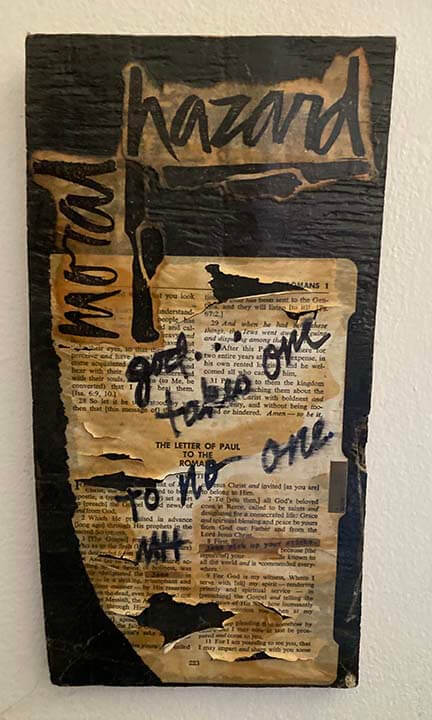
JB: Jan and another mutual friend, Libby Hall, were sitting around one night just thinking about what would be a good name. They saw the phrase “moral hazard,” and it was an insurance term. We said, “That’s great!” It really fit. Barbara Brosick designed our logo, which was really good.
We did two weekends. We did a Friday and a Saturday night at eleven o’clock, after the play. We’d have to wait for them to move all the theatrical set before we could set up our equipment. We carried in coolers of beer that we sold, and we would hang out in nearby Charis Books and More as our green room, you know. It was funny. Then when we’d get the nod that it was time to start. We walked across Moreland Avenue to the theatre hauling our equipment and coolers of beer.
We didn’t know how people would take it because it was some controversial shit, such as Jan tearing pages out of the Bible. There was a skit called “The Gideon Thugs,” and we were hell-bent to get rid of every Bible in hotel rooms, or something like that. I grew up in a Baptist church, and I was a definite atheist at the time. Still, I kept a baseball bat back there with my drums in case somebody might try to attack us. I didn’t know. But I was a karate student, I was oriented that way.
RN: When did you study karate?
JB: Marianna Kaufman started an informal women’s karate group. She had gotten a black belt in Tang Soo Do Karate at Joe Corley’s studio, which was a unique thing for a woman to get that back then. She decided to open it up then, and I trained with her for about three years. We would train in churches sometimes, out in a park, or at Bass Community around Little Five Points, and it saved my life. We did self-defense. I’d help her teach self-defense classes on the weekend. I still remember all that stuff. I’ve been attacked twice in my life, and knowing self-defense saved my life. It kept me fighting. Marianna Kaufman was very special to me for many years. She is an activist, you know.
She was an original member of ALFA. She and her partner still live in Little Five Points. I still have all my notes from those classes because really, it saved a number of women’s lives. Some of the things she said saved our lives. It was great.
RN: Was it in Atlanta that you were attacked?
JB: Yes, in Little Five Points. It was the late 1970s. He stood some blocks up so he could see in our bedroom window. He saw us two women lying in bed. He went around to the dining room window, which was the only window that didn’t lock. We had just moved there a week before. We stayed up late that night watching TV. It was rape awareness month in Atlanta. The movie was A Case of Rape, with Elizabeth Montgomery. It was an awful movie, and it had a bad ending.
After watching that, we turned the TV off and went to bed at about two o’clock. I walked around to every window in the house, thinking, “I have to fix that dining room window because it doesn’t lock.” At 4:00 am, my girlfriend opened her eyes to see some guy standing over our bed. It was like Crouching Tiger, Hidden Dragon. I somehow came to my feet and went right at him. He came down on my head with a night stick, and it didn’t even phase me. We were wrestling in the doorway of my bedroom. He broke away from me. He ran and dove headlong out my dining room window, and ran down the street. I almost dove after him. I was naked and bleeding like a stuck hog (it took seventeen stitches). I didn’t hesitate.
RN: What were the years the band was active?
JB: 1980 is when we started. John Lennon had just died, and Reagan had just been elected. Back then, it was illegal to be gay or to smoke pot, both of which we did, you know. There were really bad rules back then. We were together as a band and we broke up twice. I was talking to JB to see what she remembered. She doesn’t even remember us breaking up. Jan and I had more conflict. We loved each other, and we were both left-handed Texans. We loved each other, and I think that we were so much alike. It somehow doesn’t make sense that it would interfere, but in a way, it did.
Our first show was in January of 1980. In 1981, maybe along in the summer, we did the second show. For that show, she talked us into having these two women being the snake dancers. One of them was her girlfriend. It’s no secret that it wasn’t a good or necessary addition to the band. I went along with it for a while. But in the end, it was changing the nature of it.
Jan did a third show [Gaga], but I wasn’t in the band then. Kay Busby, I think, played drums, and I’m not sure what all. But we were estranged during that time. Then toward the end of the 1980s, Jan broke up with her. We got back together for a while. JB remembers people just got busy doing other things. Jan became a parent. She was a mother with another woman of a daughter that’s now in her thirties, and she is beautiful. She’s an engineer and everything else. They did that back when it wasn’t cool to do that.
It set me free in a lt of ways because I cherish Jan and JB and KC.
We were a trip, the four of us.
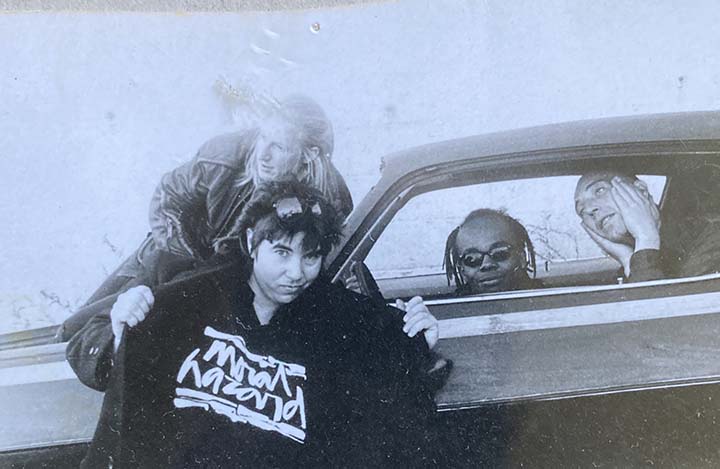
I kept playing music. I played with a lot of different other groups, and a theatre group. I don’t think anybody else did a lot after that.
This is a funny story, but it ends up a good one. After one of the shows, KC had just been pissing me off or something. We used a chocolate cake for the song Eat Sweet Treats. After the show we were cleaning up, and I had the cake. I was cleaning it out, playing as if to throw it in her face. She said, “You wouldn’t dare!” I decked her with it. I had never done that to anybody. We were scraping the lard off that theatre all night. It wasn’t an evil act. Last year, I called KC and apologized for it because I wasn’t happy about it.
We played at a lot of different places. We’ve played for women’s groups in Athens, Georgia, and Gainesville, Florida. That was good, too. We went to Knoxville once, I think. We did a lot of benefits for ALFA. A lot of the times that we played were benefits, like for Southern Voice [an alternative newspaper in Atlanta], or different things. We played Little Five Points Pub a lot.
There was this club called the Cotton Club. I don’t know if it’s still open or not. They were having some kind of activist event where Peter, Paul and Mary were the headliner stars. We had been invited to be one of a few of the opening bands. It was the fanciest thing. We got a kick out of acting like we were a real rock and roll band. They asked us things, like if we wanted anything. We remember Peter, Paul and Mary asked for M&Ms with the brown ones missing, and they asked for white socks. It was funny.
RN: There’s a photo of y’all playing at Charis Books and More at one of its old locations.
JB: Probably. Jan lived in Linda Bryant’s house. [Linda Bryant owned Charis bookstore.] Jan was close friends with her.
RN: Tell me a little bit about the songs that Jan wrote, the lyrics and the themes, and what kind of music you were playing.
JB: Rock and Roll! Let me cue up one of the songs. Move the recorder over close to the computer. Our mantra was, “Take a walk on the dark side.”
RN: The title of the album is Step Over This Line.
JB: This is JB on bass. [Music plays] This was our people’s greatest hits, Bisexual Girls.
RN: Say some more about the songs we just heard.
JB: “Take a Walk on the Dark Side” was kind of our anthem. We just loved putting power behind that song. Our audiences, which were a lot of lesbians, just loved it. It just sang to our heart of what it used to be like to be a homosexual, to be in the closet, and having to be in the closet. It’s a hell of a discrimination. With “Bisexual Girls,” one of us had a fling with a bisexual woman, and it turned out wrong. But we turned it into a fabulous song. Jan also wrote a song called “Leave the Jews Alone,” but it was a cool song. It wasn’t on our album. We couldn’t put them all on it.
RN: Were those mostly political, or were they mostly romance songs?
JB: I guess they were both. “Eat Sweet Treats” was about how all of us get wiggy with candy bars and stuff like that. It was funny. When we would do that skit on stage, the scene would open with Jan sitting on the floor with a vibrator and a pile of Snickers wrappers. She would do some kind of soliloquy about overeating, and then, we launched into “Eat Sweet Treats,” which is a great song. It’s kind of a really sad song, but it’s powerful. It goes, “Three a.m., it’s three a.m., I’m driving, driving out on the street. I’m stuffing my candy wrappers under the seat,” or something like that. It’s the angst and the neuroses of fucking up with food all the time. Anyway, they all were great. “Yellow Rose of Texas” was a great jazz-oriented song. Jan and I are both left-handed and Texans born. She was born in Amarillo, and I was born in Waco.
[Listen to clips from “Eat Sweet Treats” and “Bisexual Girl.”]
Eat Sweet Treats
Bisexual Girl
RN: Tell me more about the band and why it ended.
JB: I think we started doing different things. I don’t know. Maybe Jan knows. I wouldn’t say we were meeting every month or anything like that. For a while there, we were on a jag early on, maybe in the first two or three years. We don’t have a specific date for the end.
RN: One date of a performance was Friday, October 21, 1983, admission four dollars. Those were the days. Did you ever perform after the Moral Hazard years?
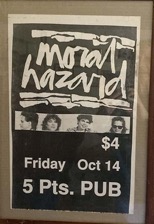
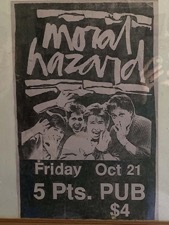
JB: Yes, I continued to play music. I love playing drums. I played with the Earthlings, which was a band from a bunch of people in Acme Theater. Jimmy Grimsley [jimgrimsley.net – Fourteen of his plays were produced between 1983 and 1993], who was a famous playwright, was one of the lead singers in that band. We played original, strange music. Back then, we shared bills with RuPaul. I remember seeing RuPaul when RuPaul was the popcorn boy at Ansley Mall. I remember going to Ansley Mall one night to buy some popcorn, and the guy selling popcorn had a nametag that said RuPaul, and I thought, “No way!”
We had a good time, and it wasn’t going to be a long-term kind of thing. I also played with a bunch of different guys that were really good musicians. I played a lot of gigs with Alan Joyner, a local great guitar player who would come up with gigs mainly down south in McDonough and Henry County [Georgia]. I was playing some hardcore rock and roll. We played all kind of stuff. I really love playing drums, and I continued to play drums out on the West Coast. when I lived on Orcas Island, in Washington State.
Orcas Island, Washington, and a Horse Named Coal
RN: When were you living on Orcas Island?
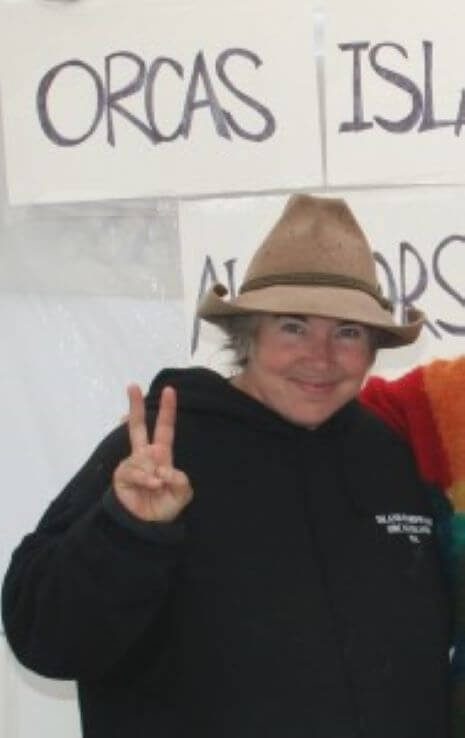
JB: From 2002 to 2011. In 2012, I had a stroke, and since then, I can’t play drums the way that I used to. My bass drum foot’s kind of weird. I can play slow stuff, probably, if I had people to play with. I was never a drummer that sat around going rat-a-tat-tat all the time by myself. I’d rather back up somebody singing, playing guitar, or something. I’ve got a roomful of instruments, but I don’t have anybody to play with it. It’s like riding a horse. I like riding with other people and other horses. I started playing guitar as I moved to Orcas Island, and have written twenty songs or so.
RN: You’ve got a horse?
JB: I’ve got a horse out there. You can meet him. His name is Coal. I’ve had him for twenty-two years. He’s black and shiny. He was bred to be a leopard Appaloosa, and he’s registered as an Appaloosa. A leopard Appaloosa looks kind of like a Dalmatian dog’s pattern, but this horse came out black. It’s typical that he would come to me. He lost his mother when he was three months old, and I lost mine when I was six. I swear, I think Coal and I found comfort in each other. We’re lifetime herd members. He has a couple of goats that are his pasture mates now. We’ve been here almost five years. Coal was a therapy horse for two years before I brought him here. He did great at carrying wheelchair-bound children around. He was absolutely trustworthy.
I swear, I think Coal and I found comfort in each other. We’re lifetime herd members.
Drumming, Writing, and Weightlifting
JB: I did want to say that being a drummer, we drummers come like the offensive line in football. You don’t really get to make a lot of decisions about the words and the music because you’re just the beat.
Actually, I am a writer, and I’ve written a lot of stuff. I’ve written a couple of books. I have them right here. I made a poetry book, No Shame, that I printed at Kinko’s copy shop. I also printed a novel I wrote, Bastante. I wrote the first draft in 1993, when I was managing one of the most famous iron gyms in the country, Coffee’s Gym. Bastante is about the sex, drugs, and rock and roll of physical culture, as is represented in bodybuilding. I self-published it in 2006 when I lived on Orcas Island.
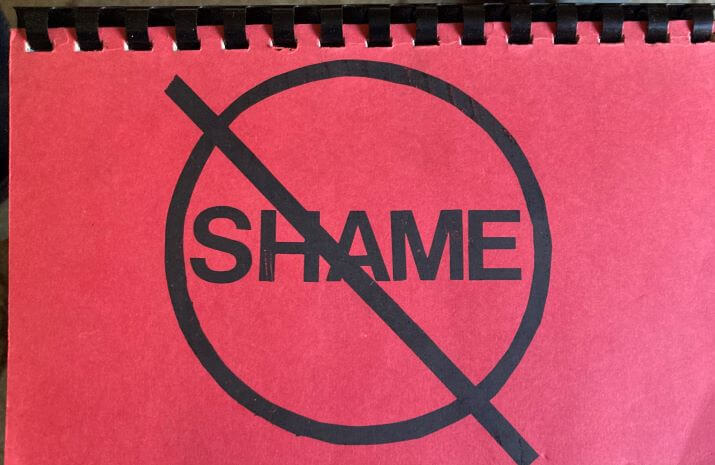
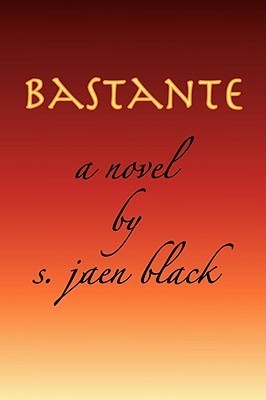
RN: Talk about weightlifting.
JB: I really have a lot of extensive weightlifting stuff. I’ve competed in Olympic weight lifting until 2016. In 1998, I was the first woman to be granted a national coaching card in Olympic weight lifting. I made my living as a strength coach from 1996 on, and it was my main occupation. I used to be suicidal. I wrote that book, No Shame, because I was planning to kill myself after I made this book, and I wanted there to be something left behind. I don’t feel that way now. I’ve kicked the habit since I have a home that I never have to leave, and my horse has a place that he never has to leave.
A lot has changed for me. I’m not religious, but I use the word “God,” and I pray often throughout the day in just my own way. I don’t have to go anywhere to talk to God. I ask for guidance and for help with the things that come up. It has been a profound change in life for me.
RN: All those medals that I see over there, are those weightlifting medals?
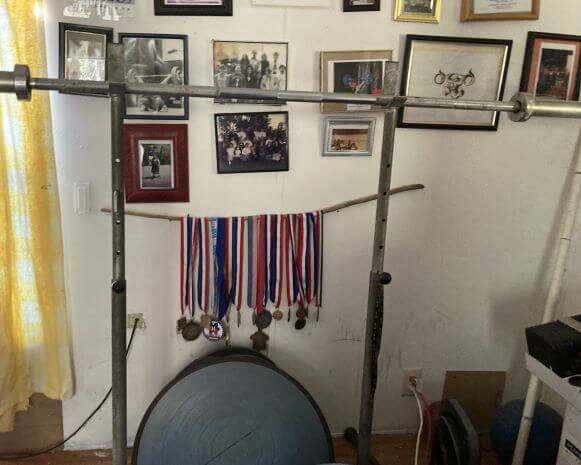
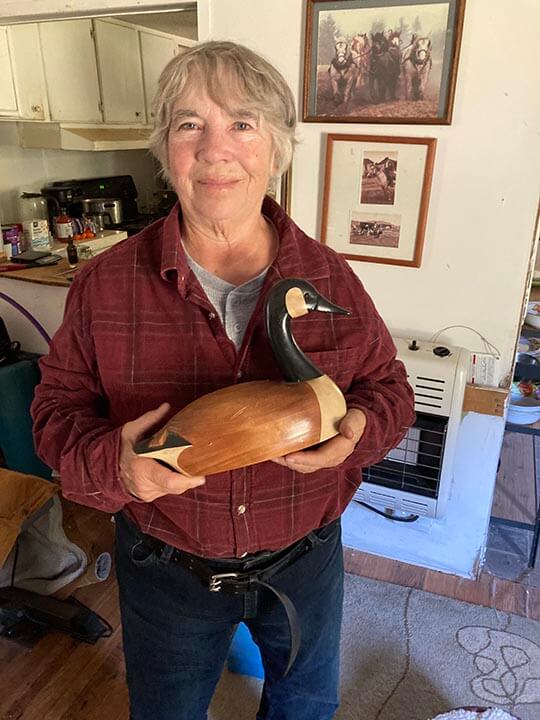
JB: They’re national and international medals that I won. I set a number of masters world records, the 1996 Masters Weightlifting world record, for example, back in the day. This hand-carved decoy duck is my favorite trophy.
Not many old ladies have squat racks in their living rooms. I can still do the lifts. I don’t do squat version any more. Now I squat, but I only squat to parallel because my right knee doesn’t bend 100% anymore.
My favorite trophy story is from 1996, when I ran into a couple of situations where there were weightlifting meets. For Best Lifter awards, they didn’t give out equal awards to men and to women. I was enough of a feminist to raise hell about that, particularly because this was in Canada. I spent a lot of money going up there to do that. I knew the trophies were going to be hand-carved Canadian duck decoys by a famous artist. I got up there, and I won. When I saw them pass out these decoy trophies only to the men, I thought, “What?!” I raised holy hell. A year to the day later, I got this one in the mail with a letter of apology. Three other women around the world got them, too. I have been a part of the activism since women weren’t even allowed to lift in the Olympics until the year 2000.
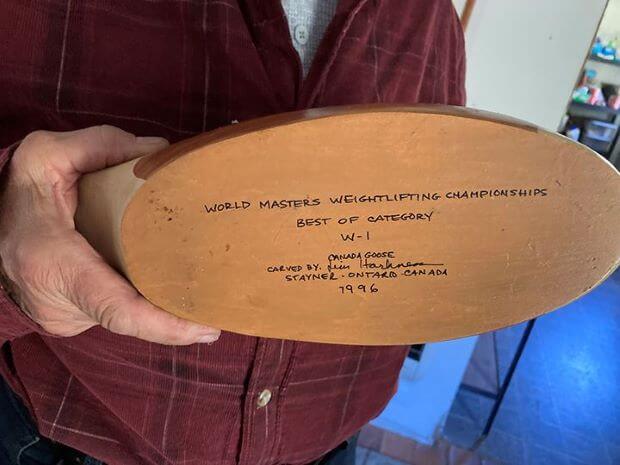
Now, just for the record, there have been men with balls that have broken women’s master world records to the degree that two women’s totals wouldn’t equal what this guy did. I’ve got a real strong belief that it’s a new way for men to fuck over women. I don’t see it any other way.
I was talking with somebody else about this fifteen years ago when I lived on Orcas Island. I had been looking around on this thing called “The Butch-Femme Hotline.” I was trying to talk a girl into coming to see me. I was seeing all these posts by young women who were saying that they were on testosterone. I know a lot about steroids from weightlifting. I haven’t done them, but I’m not anti-drug. I’m an old hippie. But I don’t see how any feminist can go home with that agenda, when it’s a misogynist thing. I don’t get it. Anyway, I feel very sad about that.
When I first started hanging around with ALFA [the Atlanta Lesbian Feminist Alliance], I didn’t know about any kind of political anything, and I grew up sixty miles from Selma. I came to learn a lot. Of course, I fell in love with Micky Alberts, a New York Jewish lesbian who helped me understand. I really learn about a lot of things in the world that I didn’t know, things that I needed to know. She was one of the first students in the first Women’s Studies program in Buffalo, New York.
RN: I’ve interviewed Mickey Alberts with Frances Pici about their Red Dyke Theatre. [See Merril Mushroom, “Red Dyke Theatre,” Sinister Wisdom 104 (Spring 2017): 135-38.]
JB: I was in Red Dyke Theatre. I was kind of the filler act. One time I rode Pici down the aisles of the Metropolitan Community Church on a motorcycle while she was lip-synching the song, “Leader of the Pack.” That was great fun!
I have been really lucky to be part of some really interesting things, weightlifting and everything else, like all the musical things. I’ve played rugby and learned a lot about things like that. We used to go to rallies when I first learned about feminism with ALFA and everything. That was in the heat of when it looked like the ERA would get passed, shortly after I got involved with ALFA. I wasn’t in NOW, but we went to NOW rallies and also, to ALFA parades, when people had to wear sacks on their head to protect their identity. I remember one year when Anita Bryant came to speak at the Southern Baptist Convention in Atlanta. It was when Mariana Kaufman, my women’s karate teacher, and I were doing karate. Mariana got me to be a security officer for that protest parade. There were 3,000 of us. They were just protesting that she had come to Atlanta, and she had recently said something again tacky about gays.
[This would have been 1977 when she started the “Save the Children” campaign. [See Merril Mushroom, “Anita Bryant, Florida, 1978” Sinister Wisdom 109 (Summer 2018): 14-16.]
RN: Anita Bryant’s granddaughter is lesbian.
JB: Bless her heart!
CODA:
Nowadays Jaen is playing a guitar that she got years ago when she was a vegan. She traded her leather bomber jacket for the guitar. At the time, she found that she couldn’t get into playing guitar, maybe because she is lefthanded and needed to make adjustments in order to hold it properly. The guitar wound up in her attic in Little Five Points in Atlanta until a few years ago, when she was packing up to move to Orcas Island. When she got it out of the attic, it was suddenly very special. She began slowly teaching herself to play easy chords. She was attracted to guitar as a more personal instrument that “soothed me in a way that drums couldn’t.” She especially enjoys writing lyrics to sing with it. “It was a fun thing for an old drummer.” Thinking back, she muses that “drums were a fun instrument in my prime, absolutely sexual, hot.” As a drummer, she enjoyed “looking at the audience or a floor full of people dancing to our music. That’s another fun aspect of it.”
See also:
Article in the Orcasonian newsletter: Jaen Black’s gifts of wit and laughter light up the Lower
Beth York, “Consciousness Raising with Anima Rising,” Sinister Wisdom 104 (Spring 2017); 15-25.
Moral Hazard, Step Over This Line, CD, ten songs, 41 minutes, available on iTunes and Spotify.
Rose Norman, “Moral Hazard: The South’s First Out Lesbian Band.”
ADD LINK TO FEATURE STORY
This interview has been edited for archiving by the interviewer and interviewee and again edited and updated for posting on this website. Original interviews are archived at the Sallie Bingham Center for Women’s History and Culture in the David M. Rubenstein Rare Book and Manuscript Library at Duke University in Durham, North Carolina.
